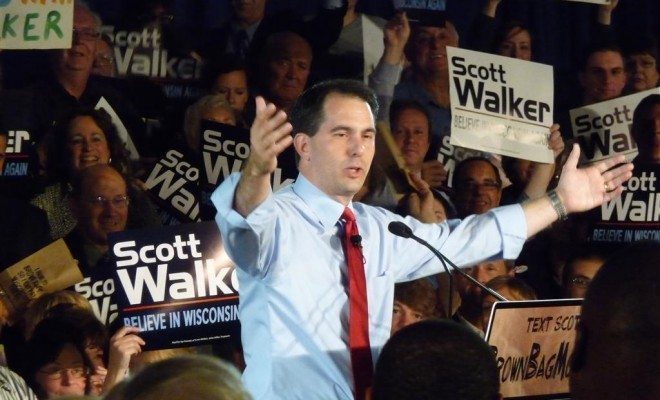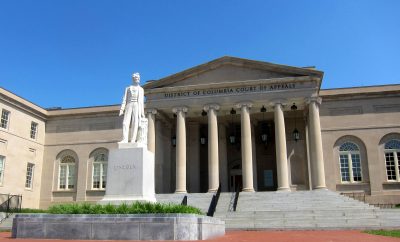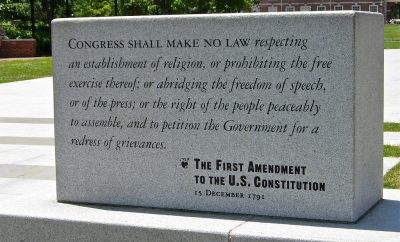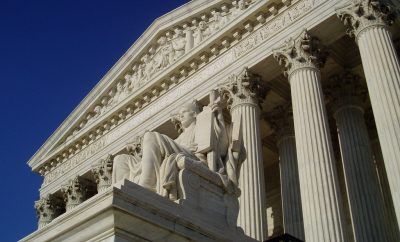
News
Scott Walker on a Legal Tightrope
In 2012, Wisconsin Governor Scott Walker became the first American governor to survive a recall election. But it was recently discovered that he may have won that election illegally. In court documents released last week, prosecutors argued that Walker was involved in a “criminal scheme” that involved coordinating with outside groups. Special Prosecutor Francis Schmitz also alleges that Walker collaborated with “a number of national groups and prominent figures,” including Karl Rove.
Campaign Finance Law: A Primer
To better understand what Walker is accused of, let’s walk through the basics of campaign finance law. Ever since the Citizens United v. Federal Election Commission Supreme Court Ruling, which allowed corporations to make unlimited independent expenditures for political purposes, Super PACS have been on the rise. Super PACS are allowed to raise as much money as they possibly can and spend as much as they like on politics. The only catch is that they cannot coordinate with actual political campaigns. This means a Super PAC can advocate for a candidate, or for a candidate’s issues, but they cannot have any communication with the candidate’s campaign. Walker is accused of coordinating with Super PACs–generally referred to as outside groups.
Walker’s Case
If you think all that seems a bit complicated, it’s even harder to figure out if Walker is guilty or not. The prosecutors do have some pretty solid evidence, including email exchanges, that point to there being collaboration between Walker’s campaign manager and outside groups. But the prosecution is currently in an appeals battle to see if the emails will even be admissible, given that a judge has already ruled that the subpoenas used to get this evidence should have never been issued. According to Judge Rudolph Randa, Walker may have found a loophole in campaign finance law, which would render the subpoenas illegitimate.
The loophole that Walker may have taken advantage of is that the ads made by the outside group were “issue ads” and not “campaign ads.” Here is an example of an “issue ad” made by the Wisconsin Club for Growth, one of the organizations accused of collaboration:
And here is a “campaign ad” made by Scott Walker:
The main difference between the two is that in the second ad, Walker says he is running for governor and it’s clearly an ad made to get votes. But the first ad never mentioned an election. It was just raising an issue and asking citizens to call their congresswoman about it. It never asks the viewers to vote for anyone.
This may seem like a subtle difference, but it has huge implications under the law. A “campaign ad” has many more legal restrictions than an “issue ad.” So, because the outside groups exclusively made “issue ads,” Judge Randa ruled that the coordination the prosecutors claim happened is perfectly legal.
A panel of appellate judges is hearing the case now. This case may go to the Supreme Court, as it is a very important issue that requires clarification. If the appellate court upholds Randa’s decision, then it will be legal for campaigns in Wisconsin to coordinate with outside groups, as long as the outside groups only use “issue ads.” If the case makes it to the Supreme Court, they could rule that this type of coordination must be allowed in all states.
Fortunately, I do not see this happening. Though the same majority that ruled in Citizens United is still on the court, I think they would rule that this type of coordination should not be allowed. The key to the ruling in Citizens United was that independent expenditures could not be limited. They cease to be independent expenditures when there is coordination, and I do not think SCOTUS would find “issue ads” to be free of any electioneering. The Supreme Court would hopefully see them for what they are–ads to sway voters. The fact that “issue ads” never mention an election is just a disingenuous loophole. Let’s be honest, when was the last time you saw an ad like the one posted above and it wasn’t an election season?
Now, as far as the Scott Walker case goes, it is on hold until the Court of Appeals rules on whether there is even a crime for the prosecution to look into. Then they have to go back to a Wisconsin Court and see if they can even get their subpoenas re-issued. The whole process could take a while, especially if the case makes it to the Supreme Court. And even if the Court of Appeals does rule in the prosecution’s favor, there is still a long way to go before charges can be filed. All factors considered, it seems like this issue will have very little impact on Walker as a 2016 Presidential hopeful.
—
Matt DeWilde (@matt_dewilde25) is a member of the American University class of 2016 majoring in politics and considering going to law school. He loves writing about politics, reading, watching Netflix, and long walks on the beach. Contact Matt at staff@LawStreetMedia.com.
Featured image courtesy of [WisPolitics.com via Flickr]








Comments